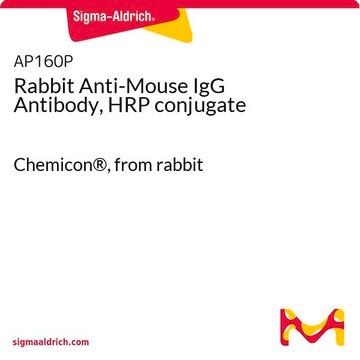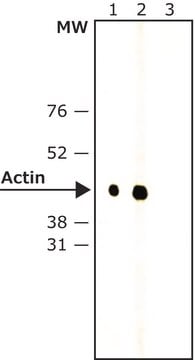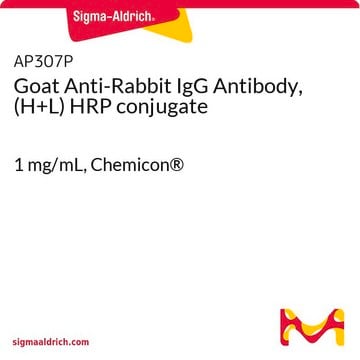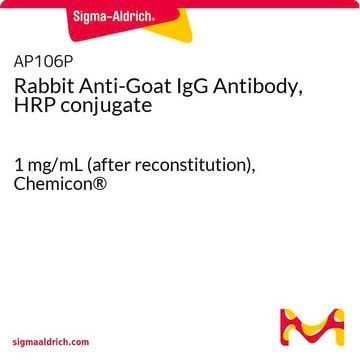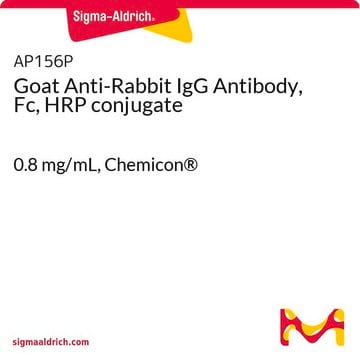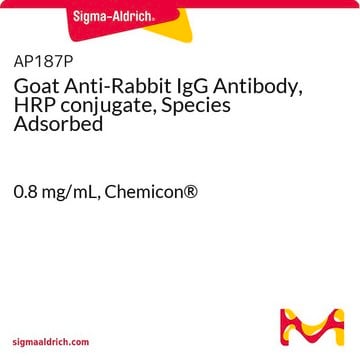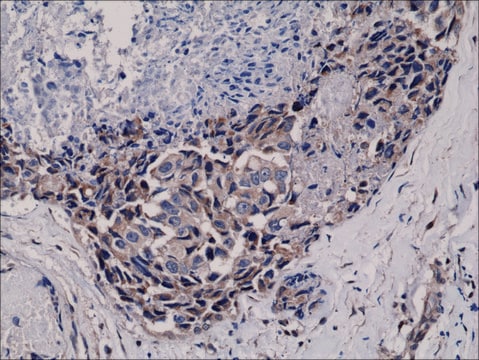AP188P
Mouse Anti-Rabbit IgG Antibody, HRP conjugate, Species Adsorbed
0.8 mg/mL, Chemicon®
About This Item
Empfohlene Produkte
Biologische Quelle
mouse
Qualitätsniveau
Konjugat
peroxidase conjugate
Antikörperform
F(ab′)2 fragment of affinity isolated antibody
Antikörper-Produkttyp
secondary antibodies
Klon
polyclonal
Speziesreaktivität
rabbit
Hersteller/Markenname
Chemicon®
Konzentration
0.8 mg/mL
Methode(n)
ELISA: suitable
western blot: suitable
Versandbedingung
wet ice
Posttranslationale Modifikation Target
unmodified
Anwendung
Immunohistochemistry: 1:500-1:5,000.
Optimal working dilutions must be determined by end user.
Physikalische Form
RECONSTITUTION:
Reconstitute with sterile distilled water to match the volume indicated on the vial label. Centrifuge product if it is not completely clear after standing for 1-2 hours at room temperature.
Rechtliche Hinweise
Not finding the right product?
Try our Produkt-Auswahlhilfe.
Lagerklassenschlüssel
11 - Combustible Solids
WGK
WGK 3
Analysenzertifikate (COA)
Suchen Sie nach Analysenzertifikate (COA), indem Sie die Lot-/Chargennummer des Produkts eingeben. Lot- und Chargennummern sind auf dem Produktetikett hinter den Wörtern ‘Lot’ oder ‘Batch’ (Lot oder Charge) zu finden.
Besitzen Sie dieses Produkt bereits?
In der Dokumentenbibliothek finden Sie die Dokumentation zu den Produkten, die Sie kürzlich erworben haben.
Kunden haben sich ebenfalls angesehen
Unser Team von Wissenschaftlern verfügt über Erfahrung in allen Forschungsbereichen einschließlich Life Science, Materialwissenschaften, chemischer Synthese, Chromatographie, Analytik und vielen mehr..
Setzen Sie sich mit dem technischen Dienst in Verbindung.
